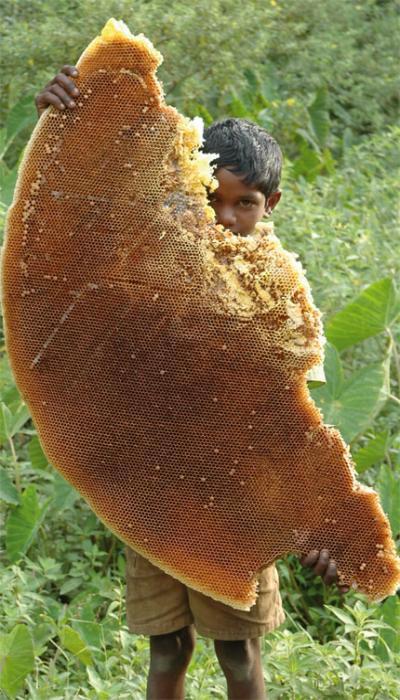
Jenu Kurumba is one of the tribes of South India. The Government of India has identified them as primitive tribal group. They live in three states: Tamil Nadu, Kerala and Karnataka. They are found mainly in the hills and forests of Nilgiris district of Tamil Nadu, Wayanad district of Kerala, and Mysore and Kodagu districts of Karnataka. In general, most of the Jenu Kurumba habitat falls in the Mudumalai - Wayanad – Bandipur wildlife sanctuaries.
In Tamil Nadu and Kerala they are identified as ‘Kattu Nayakas.’ ‘Kadu’ in Tamil means ‘Jungle’ and ‘Nayaka’ in Tamil means ‘King.’ In Karnataka, they are identified as ‘Jenu Kurumbas.’ ‘Jenu’ in Kannada means ‘Honey’ and ‘Kurumba’ means ‘Shepherds.’ Traditionally, Jenu Kurumbas were gatherers of wild honey. However, there is no evidence that they were sheep herders.
At the present time, the main economic activity of Jenu Kurumbas is agricultural labor. Since Jenu Kurumba is the more popular term known in all three states, we refer to both the community and the language as ‘Jenu Kurumba.’
Because of the variety of names and alternate names associated with the Kurumba subgroups and because censuses of different years use varying categories, it is difficult to arrive at an accurate population figure for the Jenu Kurumba. However, the population may be around 50,000 or even more.
Jenu Kurumba is a member of the South Dravidian language family. It is generally more closely related to Kannada than to Tamil or Malayalam.
The literacy rate is not exactly known but very low. There are lots of drop-outs among the school children.
To know more about Jenu kurumba click earth hour
To watch videos about Jennu kurumba on youtube click here